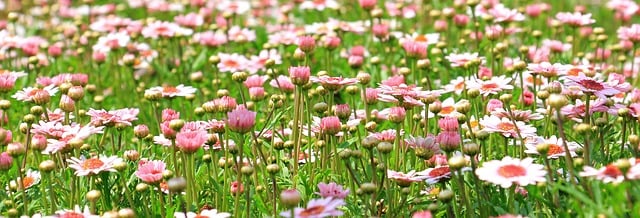4 Tips to Keep Your Garden Healthy

Walking into your beautiful garden with wonderful plants thriving gives you a very blissful feeling. But imagine how mystifying would be waking up to some plants looking unhealthy all of a sudden? Quick thoughts that jump into your mind are mostly about why your plants caught a disease, whether it will spread to all the other plants.
The only reasonable thing to do at such a point would definitely be to get rid of the disease by treating your plants. Otherwise, your plants may end up dying. However, to prevent such an eventuality there are a number of things that you can do to keep your garden healthy.
First off, you need to understand that an unhealthy garden can be a result of any of these three factors that lead to plants diseases:
- Environmental conditions that are unfavorable to your plants such as humid or dry weather
- Your garden has been invaded by a pathogen e.g. a virus, fungus or bacteria
- You have a weak plant that can easily get sick thus acting like a host
The above factors can either cause disease on their own or when they coincidentally happen together. Keeping your garden healthy will require you to ensure that these factors do not prevail. Here are 4 tips that will help you to keep your garden healthy:
Ensure your plants are healthy
Before you introduce any plant to your garden, carefully inspect them to be sure of their health. Besides checking them for diseases, this exercise also allows you to know whether the new plants are harboring pests and bugs that need to be eliminated. Some harmful pests include aphids and whiteflies and these require to be effectively exterminated.
Water your plants properly
Water in the right capacity is very essential for plant growth and survival. However, over-watering your garden can lead to unhealthy plants for example by causing spotting on leaves. Too much water also encourages the growth of fungi and this is definitely a threat to your plant’s health. Even when you water your plants, ensure you give your garden a break to dry up a little to avoid over-saturation.
It is also important to ensure that you do not wet the foliage but instead, direct the water to the soil when you are performing this task by hand. In case you want to automate your watering process, a drip irrigation system is preferable to using sprinklers
Refresh your soil by treating it
Over time, the soil in your garden is prone to degrading and calls for refreshing. Instead of buying new soil to replace it with, you can use fertilizers to keep your garden healthy. You must however be keen to use recommended amounts and types of fertilizers depending on the plants you are growing.
You can also use manure that has been thoroughly composted to ensure that all pathogens have been killed. If you use manure that has not been properly composted, you risk re-introducing diseases to your garden from plant debris that may have been previously infected. Mulching is also another activity that you can adopt to help your soil to retain moisture and stay refreshed. As a side point, I would highly recommend that you check out Pristine Gardens to see the high-quality services they have to offer
Keep performing plant maintenance
There are several ways of maintaining your plants. For example, pruning your plants allows you to control their growth and create room for new branches. You can also deadhead and cull your plants to allow your plants to flourish.
Apart from promoting plant growth, doing the above also allows you to take notice of and clear hidden pests. It is important to fence around your garden too to keep out animals that can destroy the plants. Regular maintenance also keeps away viruses and bacteria from your garden.
No related posts.